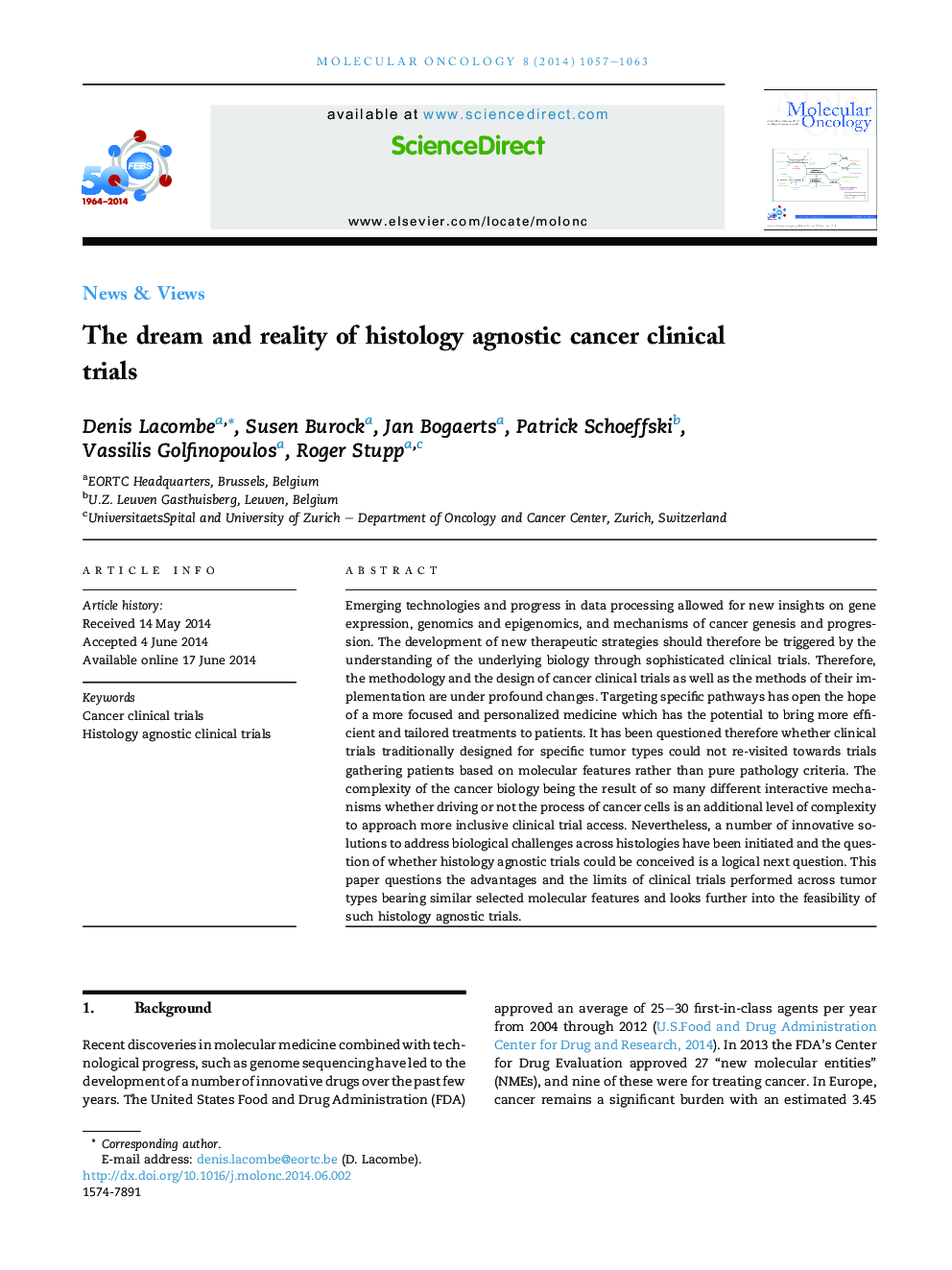| Article ID | Journal | Published Year | Pages | File Type |
|---|---|---|---|---|
| 2145565 | Molecular Oncology | 2014 | 7 Pages |
Emerging technologies and progress in data processing allowed for new insights on gene expression, genomics and epigenomics, and mechanisms of cancer genesis and progression. The development of new therapeutic strategies should therefore be triggered by the understanding of the underlying biology through sophisticated clinical trials. Therefore, the methodology and the design of cancer clinical trials as well as the methods of their implementation are under profound changes. Targeting specific pathways has open the hope of a more focused and personalized medicine which has the potential to bring more efficient and tailored treatments to patients. It has been questioned therefore whether clinical trials traditionally designed for specific tumor types could not re-visited towards trials gathering patients based on molecular features rather than pure pathology criteria. The complexity of the cancer biology being the result of so many different interactive mechanisms whether driving or not the process of cancer cells is an additional level of complexity to approach more inclusive clinical trial access. Nevertheless, a number of innovative solutions to address biological challenges across histologies have been initiated and the question of whether histology agnostic trials could be conceived is a logical next question. This paper questions the advantages and the limits of clinical trials performed across tumor types bearing similar selected molecular features and looks further into the feasibility of such histology agnostic trials.
